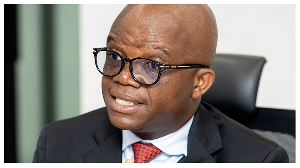Accra, May 22, GNA - The World Bank is proposing a major shift in its approach to disclosing information: to move from spelling out what documents are disclosed (a positive list) to making available any information that is not on a list of exceptions. At a Disclosure Policy Review Consultations meeting with Civil Society Organizations, the Media and the general public in Accra the Bank said it recognized the fundamental importance of transparency and accountability in the development process and that the new approach would be more consistent with its expressed presumption in favour of disclosure.
Under the existing policy, the Bank's spells out the types of documents to be disclosed under the proposed approach, it said is its publication that "we would make all documents publicly available except those on a limited list of exceptions".
The bank said it would disclose more types of information than under the existing policy, and much of the information would be freely available on the Bank's external website.
Access to information would be denied only when there is a compelling reason for confidentiality. Examples include personal information about staff, sensitive information that member countries and third parties give to us with the express understanding that such information would not be disclosed, and information subject to attorney-client privilege.
However, Mr Tony Akoto-Ampaw, member of the Coalition on Freedom of Information criticized the Bank for not removing the exempt information clauses from maximum disclosure policy that it wanted to adopt. He said the inclusion of the exempt clauses in the new policy, undermined the very reasons that it sought to correct. The consultations were to enable the Bank to receive inputs to guide its approach to disclosing of information about partners to ensure transparency and accountability.
However, some aspects of the review document say that some information about countries can be exempted from the public if the Bank thinks that the disclosure is likely to cause harm. Mr Akoto-Ampaw said the policy to exempt some information from the public contravened the constitution of the country, which allowed for freedom of information.
He said governments were employees of the sovereign powers of the people and that there was no justification for employees to hide information from their employers.
According to him, information was crucial for any public discourse, adding that the right to information should not lead to release of opaque information but rather accurate and transparent information which was understood by all.
He called on the Bank to reach consensus with the public on whether certain information should remain classified and for that matter hidden from them.
Mr Akoto-Ampaw said stiff sanctions should be included in the review document to ensure that member countries who failed to comply in the release of information were punished. 22 May 09
Business News of Friday, 22 May 2009
Source: GNA
















